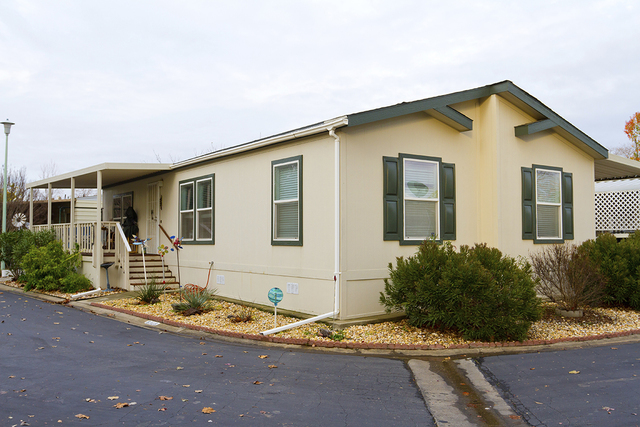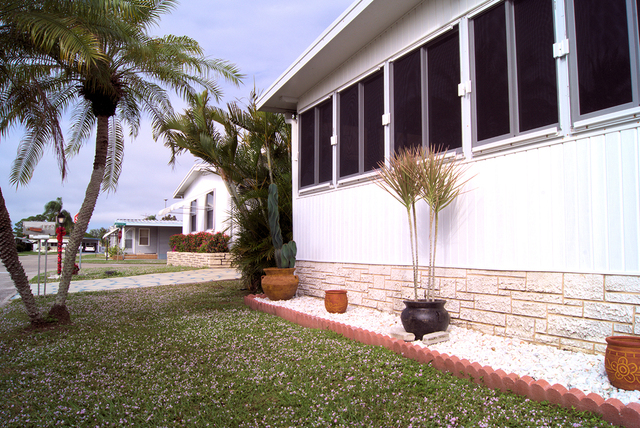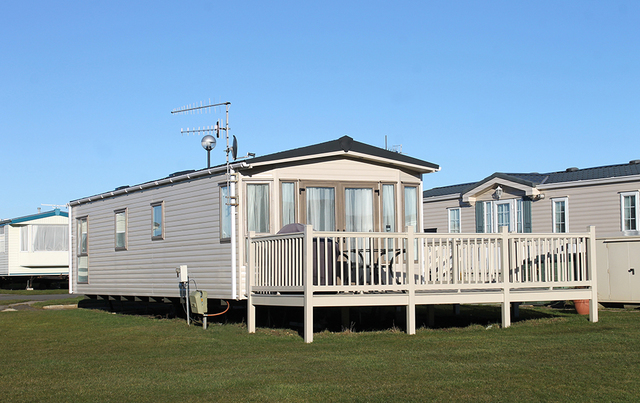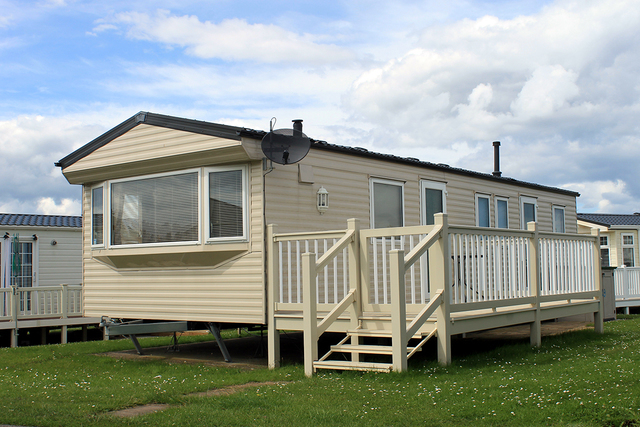How to finance a manufactured home




Buying a new home is a major investment that often requires a hefty down payment and expensive, long-term loans. For people on a tight budget, buying a mobile home or a manufactured home is a more attractive option that offers a wider range of flexibility than traditional or stick-built homes.
The price difference between a manufactured or mobile home and a single-family home is substantial. According to the U.S. Census Bureau, the average cost of a new manufactured home is about $69,800, whereas the average sales price of a new single-family home is $360,000.
What is a manufactured home?
A manufactured home is a factory-built home that is constructed on a permanent chassis so that it can be easily moved, even though most manufactured homes are not moved from where they’re first installed.
Sometimes, manufactured homes are confused with modular homes or prefab homes, but they are different things. Modular homes can be built “on-frame” — with the chassis — or “off-frame” modular, which means that the chassis is removable. Usually, modular homes are attached to private land.
Manufactured homes also differ from mobile homes because they follow a uniform construction code outlined by the U.S. Department of Housing and Urban Development Title 6 standards, also known as “HUD code.” A home that was built following this HUD code will have documentation called the Certification Label and the Data Plate. This information is important and irreplaceable as it can impact the selling, financing and insuring of the manufactured home.
Financing options for manufactured homes
Mobile home financing can be tricky, but it’s not impossible. The one thing that will increase the chances of a homebuyer getting approved is owning the home site on which the mobile residence will be located. If, on the other hand, the buyer plans on living in a mobile home park and paying space rent to the owner of that land, then the chances of getting financing through a bank are reduced.
The same type of logic goes for people who want to finance a manufactured home — whether or not that home is already attached to land can make or break the approval of a loan. In both scenarios, having good credit will help your chances of getting approved for financing or a more competitive interest rate.
Conventional loans
Although it’s not impossible to get a conventional loan for a manufactured home, it can be tougher than getting financing with a Federal Housing Administration Insured Loan. Fannie Mae and Freddie Mac lenders do make conventional loans on manufactured homes, but the specific lender you want to use must meet specific requirements.
For example, Freddie Mac requires loan originators to comply with their Single-Family Seller/Servicer Guide Chapter 5703. This guide sets out several rules including requiring a minimum down payment of 5 percent, which has to be paid for out of the borrower’s personal funds, for all purchase transactions.
Additionally, Freddie Mac requires originators to consider the added collateral risk a manufactured home poses and, in conjunction with credit reputation, capacity and collateral of the borrower, use that added risk consideration to assess the overall risk of the mortgage loan.
One advantage Freddie Mac does offer is to borrowers who own the land on which the manufactured home will be attached. This land might be used as an equity contribution.
Chattel mortgages
The difference between borrowers who own land and those who don’t is that the manufactured home is considered “real property” in the former circumstance and, in the latter, it’s considered “personal property.”
For borrowers who are leasing the land on which the manufactured home will be located, a common option is chattel mortgage loans. The drawbacks of a chattel mortgage loan are that the interest rates are higher and the terms are usually shorter than conventional or FHA loans, so monthly payments will be higher.
Borrowers who have good credit, which by today’s standards is around a 720, might land a loan with rates in the high 6 percent range. People with lower scores might be facing higher interest rates of 10 percent or more.
If you plan on living in the home for several years or more, your best bet might be to also buy the property along with the home. Buying the property and the home will most likely expand your interest rate options, leading to a better deal in the long term. Whatever you choose, be sure to research loan options before committing to an expensive loan or one with terms you’re not completely comfortable with.
FHA Loans
The FHA is in the business of insuring, not making, loans. By backing loans, the FHA encourages lenders to loan money to would-be homeowners. What that means is if the borrower stops making payments and ends up defaulting on the loan, the FHA would make a payment to the lender.
FHA loans fall under the Title I program that includes manufactured homes. One major benefit to these loans is that the FHA guidelines require them to be fixed throughout the full mortgage term, which is usually 20 years. Adjustable rate mortgages, therefore, would not be eligible for FHA backing.
Another important benefit, especially for people who will lease the land on which their manufactured home will be located, is that the FHA does not require the borrower to own the land. One stipulation to this is that the lessor must lease the land to the borrower for a minimum of three years in order to qualify for a loan.
The maximum loan amounts for Title I insured loans are:
■ $69,678 for the manufactured home by itself
■ $23,226 for a manufactured home lot
■ $92,904 for both the manufactured home and the lot
To be approved for a Title I insured loan the applicant’s credit history is reviewed and considered, the borrower must be deemed able to make monthly payments and this must be the primary residence of the borrower.
VA loans
Like FHA loans, Veterans Affairs loan guarantees offered by the Department of Veterans Affairs are insurance for lenders in case the borrower defaults on the loans. Manufactured homes — both with owned and leased lots — might get VA loan guarantees, however, the amount the VA will cover differs for each setup.
For manufactured homes that will not be put on a permanent foundation, borrowers can get a loan for up to 95 percent of the home’s purchase price. VA will guarantee 40 percent of the manufactured home loan amount or the veteran’s available entitlement, up to a maximum amount of $20,000.
Eligible parties — service members, veterans, spouses, and other eligible beneficiaries who are eligible for a VA loan — must present a certificate of eligibility or COE to qualify for VA-guaranteed manufactured home loans and they must reside in the home.
These COE requirements vary, but include specifications like minimum active duty service requirements and marriage status, in the case of an eligible spouse. Along with a COE, the borrower must also meet other requirements including a good credit rating and enough income to make the monthly mortgage payments.












